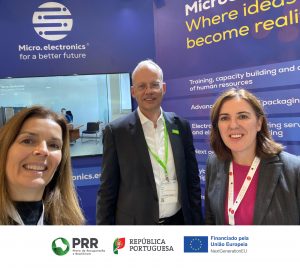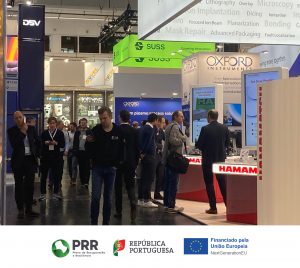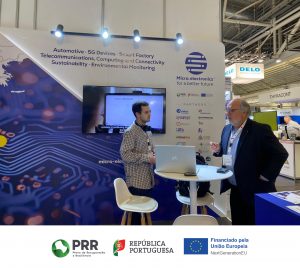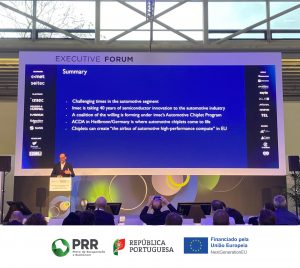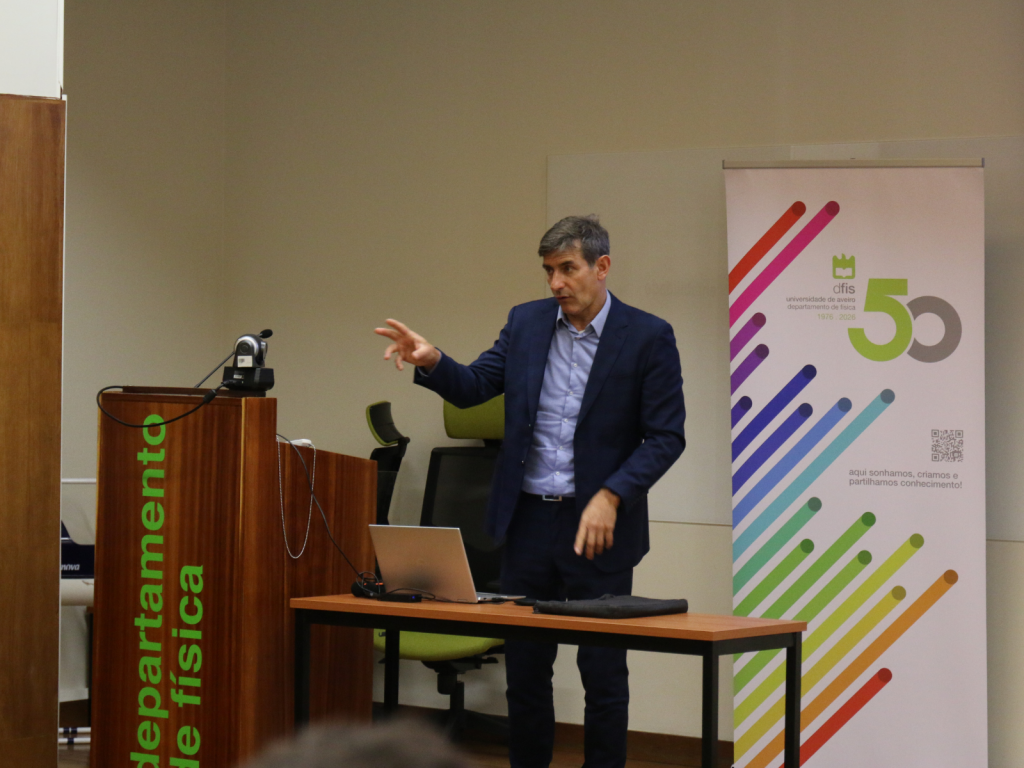The third day of SEMICON Europa 2025 once again highlighted the dynamism and growing relevance of the Portuguese microelectronics ecosystem. The Microelectronics Agenda booth maintained a steady flow of visitors — including companies, investors, technology centers, and potential international partners — interested in learning about the skills, projects, and solutions developed by the consortium.
Throughout the day, a series of meetings, strategic contacts, and presentations demonstrated the strong international interest in the innovative capacity of Portuguese entities in the sector. These moments of interaction are already generating new opportunities for collaboration, technology transfer, and internationalization, reinforcing Portugal’s position within the European microelectronics landscape.
Meanwhile, the Agenda team closely followed various conferences shaping the future of European microelectronics. Today’s sessions highlighted areas such as advanced packaging, fab management, and MEMS (Micro-Electro-Mechanical Systems) sensors, emphasizing the importance of resilience and sustainability across the semiconductor value chain.
At the Fab Management Forum (FMF), the resilience of European semiconductor fabs was the central theme. Discussions covered strategies to increase manufacturing efficiency, promote intelligent automation, and accelerate AI adoption — always with sustainability as a strategic pillar. Industry and research centers also reinforced the need for partnerships to build a more robust European value chain, fully aligned with the mission of the Microelectronics Agenda.
At the MEMS & Imaging Sensors Summit, innovations in MEMS and imaging sensors were presented, focusing on data fusion, artificial intelligence, and applications in sectors such as healthcare, electric mobility, and smart systems. These emerging technologies have the potential to transform data collection and processing, opening new opportunities for IoT, autonomous vehicles, and medical devices. The debates also addressed geopolitical impacts on sensor supply chains, highlighting the need for European technological autonomy. The trend is clear: smarter, miniaturized, and more secure sensors.
At the Global GAAC Summit – SMART Mobility, collaboration between OEMs, Tier-1 suppliers, and fabs was discussed in a context where sustainability is becoming a critical factor for the future of mobility. Electrification, autonomy, and connectivity are transforming the automotive industry, demanding more advanced semiconductors — not only in performance but also in energy efficiency and safety. The creation of strategic partnerships across the value chain therefore emerges as a decisive factor in meeting the challenges of this rapidly evolving sector.
The presence of the Microelectronics Agenda at SEMICON Europa 2025 continues to demonstrate Portugal’s ability to actively contribute to the development of next-generation technological solutions, strengthening its role in building a more competitive, sustainable, and innovative European microelectronics ecosystem.
